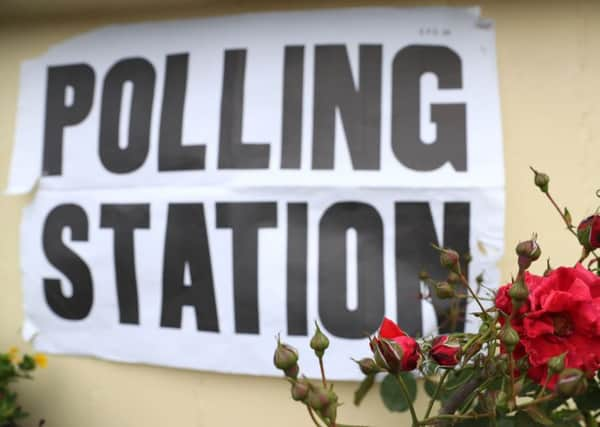Toby Howarth: A healthy democracy will now try and bind Britain together


We’ve been painfully aware during the election campaign of the challenges that this new Government will now face, from negotiating Brexit to funding a creaking NHS and social care provision, to countering the threat of terrorism to creating jobs and building new homes.
But I hope we’re also aware that the work ahead of us is not just for our politicians. It’s for all of us to bind a divided country together.
Advertisement
Hide AdAdvertisement
Hide AdThere will, of course, be lots of talk of political winners and losers. The assumption can be, wrongly, that the only people who really matter now are the winners, but a healthy democracy also takes account of those who have voted or campaigned for something which is now lost. We became aware after the referendum last year of the cost to young people who voted largely to remain in the EU, but woke up on June 24 having to live with the decision of their elders who voted to leave.
There is a risk that those who lose in an election lose faith in the democratic system. It is the responsibility of all of us to make sure that our society still has space for their voices. How do we do this?
The first answer is to recognise and affirm that a healthy democracy means more than putting a cross on a ballot paper every so often.
Democracy works at its best when we realise that we are a society of societies; that the fabric of our common life is richly woven, particularly at a local and neighbourhood level. It’s not just about me as an individual and then the ‘state’. It is, rather, me in my wider family, street and neighbourhood, belonging to any number of clubs, groups and organisations, which enable me to contribute to something bigger.
Advertisement
Hide AdAdvertisement
Hide AdThere was a report earlier this week of a theatrical costume shop that is closing as the amateur dramatics movement struggles to compete with the lure of Saturday night television or online social networks.
Of course, there are many new and different ways in which we now engage with each other, not least online. But the danger is that, as our loyalty to more formal organisations diminishes, those organisations are less able to contribute to the wider common good, and we lose the mutual accountability that they offer to us as individuals.
As I go from church to church and meet others from different faiths across the Bradford area, I am struck by the power of religious commitment both to bind people to one another, often across great differences of social class, ethnicity and culture, and to offer a space for volunteering and costly giving.
Post-election, we do well to recognise the rich fabric of all of our communities together as being fundamental to our democracy and worth investing in.
Advertisement
Hide AdAdvertisement
Hide AdSecondly, let’s affirm the value of healthy disagreement and not just leave that to politicians at Westminster or City Hall. We may laugh at Prime Minister’s Questions, but it’s important that Government proposals are scrutinised and challenged before they become law. Similarly, robust disagreement, challenge and scrutiny are important at all levels of our society.
Research has shown that when we have to talk with people who don’t agree with us, we use a different part of our brain. We are challenged and stimulated in new ways. This is good to remember in our social media age when the temptation is to live in our own ‘echo chambers’ in which a high value is placed on being ‘liked’ by those who think as we do. Democracy at its best is about winding down the windows to let in the fresh air of those who think differently.
Next month, the Anglican clergy of the Bradford area will be meeting for a day conference with Muslim colleagues to study one another’s texts. Imams will hear the Qur’an interpreted by Christians and vicars will listen to the Bible as understood by Muslims. That won’t be easy. But we are engaging with each other in this way because we believe that our differences matter and need to be talked about. And we are good enough friends to be able to do that peacefully and with humour.
Thirdly, although it’s important to have space for disagreement, we also do well to affirm what we have in common. On the weekend of June 16-18, in memory of Jo Cox MP, communities across the country will be joining in the Great Get Together, celebrating her belief that “we have more in common than that which divides us”.
Advertisement
Hide AdAdvertisement
Hide AdAfter the appalling terrorist attack in Manchester, one Book of Remembrance was opened in Bradford Cathedral, moved across to Central Mosque and was filled up in City Park. All faiths were present in all three vigils. Similar stories can be told from across our region.
As terrible as those events were, they did remind us of the need to guard what is so precious and what is under threat in our shared democracy. The ability to walk our streets in safety; to speak and believe freely; to have equal value before the law; to care as a society for the weakest and most vulnerable; to celebrate our diversity. These are precious things we must protect faithfully for ourselves and our children.